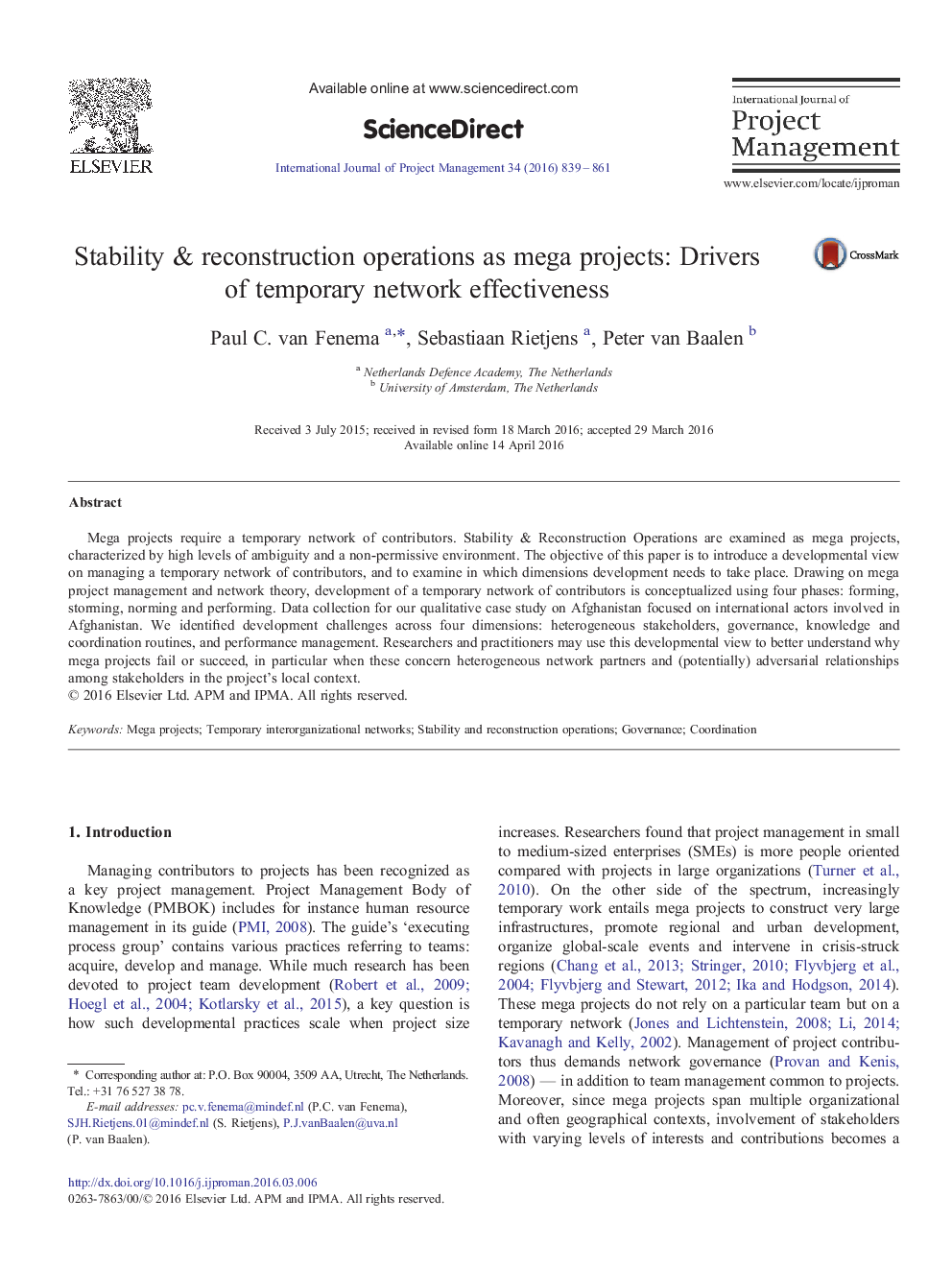| Article ID | Journal | Published Year | Pages | File Type |
|---|---|---|---|---|
| 275508 | International Journal of Project Management | 2016 | 23 Pages |
•Literature on mega projects is extended by focusing on Stability & Reconstruction Operation.•Qualitative research on Afghanistan resulted in insights into problems of network development across four dimensions.•Results explain stagnating development of a temporary network.
Mega projects require a temporary network of contributors. Stability & Reconstruction Operations are examined as mega projects, characterized by high levels of ambiguity and a non-permissive environment. The objective of this paper is to introduce a developmental view on managing a temporary network of contributors, and to examine in which dimensions development needs to take place. Drawing on mega project management and network theory, development of a temporary network of contributors is conceptualized using four phases: forming, storming, norming and performing. Data collection for our qualitative case study on Afghanistan focused on international actors involved in Afghanistan. We identified development challenges across four dimensions: heterogeneous stakeholders, governance, knowledge and coordination routines, and performance management. Researchers and practitioners may use this developmental view to better understand why mega projects fail or succeed, in particular when these concern heterogeneous network partners and (potentially) adversarial relationships among stakeholders in the project's local context.
